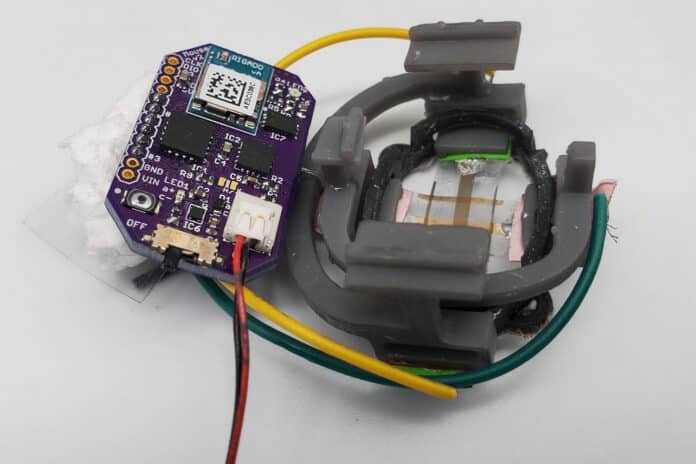Currently, the process of finding new cancer treatment therapies is slow because technologies for measuring tumor regression from drug treatment take weeks to read out a response. The inherent biological variation of tumors, the shortcomings of existing measuring approaches, and the relatively small sample sizes make drug screenings difficult and labor-intensive.
Now, engineers at Stanford University have created a small, autonomous device with a stretchable and flexible sensor that can be adhered to the skin to measure the changing size of tumors below.
Called FAST for (Flexible Autonomous Sensor measuring Tumors), the battery-powered device is believed to be the first tool capable of measuring the growth of cancerous tumors and sharing the details of the same on your smartphone wirelessly in real-time with the press of a button. The researchers say the FAST represents a wholly new, fast, inexpensive, non-invasive, hands-free, and accurate way to test the efficacy of cancer drugs. Cancer tumor measurements by FAST are accurate to one-hundredth of a millimeter (10 micrometers).
FAST’s sensor is composed of a flexible and stretchable skin-like polymer that includes an embedded layer of gold circuitry. This sensor is connected to a small electronic backpack and measures the strain on the membrane – how much it stretches or shrinks.
When the sensor stretches the gold layer inside, it develops small cracks that change the electrical conductivity of the material. Stretch the material, and the number of cracks increases, causing the electronic resistance in the sensor to increase as well. And when the material contracts, the cracks come back into contact, and conductivity improves. Using the FAST backpack, potential therapies that are linked to tumor size regression can quickly and confidently be excluded as ineffective or fast-tracked for further study.
The FAST packs used for tumor measurement in the mouse are also reusable, cost just $60 or so to assemble, and can be attached to the mouse in minutes.
“It is a deceptively simple design,” says Alex Abramson, first author of the study, “but these inherent advantages should be very interesting to the pharmaceutical and oncological communities. FAST could significantly expedite, automate, and lower the cost of the process of screening cancer therapies.”
This sensor’s ability to continuously, autonomously, and accurately record tumor volume regression suggests that this method could supplant current tumor regression measurement techniques used during in vivo preclinical trials. It also unlocks new avenues for high-throughput in vivo drug discovery screenings and basic cancer research that takes advantage of the sensor’s time-dependent datasets.
Journal reference:
- Alex Abramson, Carmel T.Chan, Yasser Khan, Alana Mermin-Bunnell, Naoji Matsuhisa, Robyn Fong, Rohan Shad, William Hiesinger, Parag Mallick, Sanjiv Sam Gambhir, and Zhenan Bao. A flexible electronic strain sensor for the real-time monitoring of tumor regression. Science Advances (2022). DOI: 10.1126/sciadv.abn6550.
